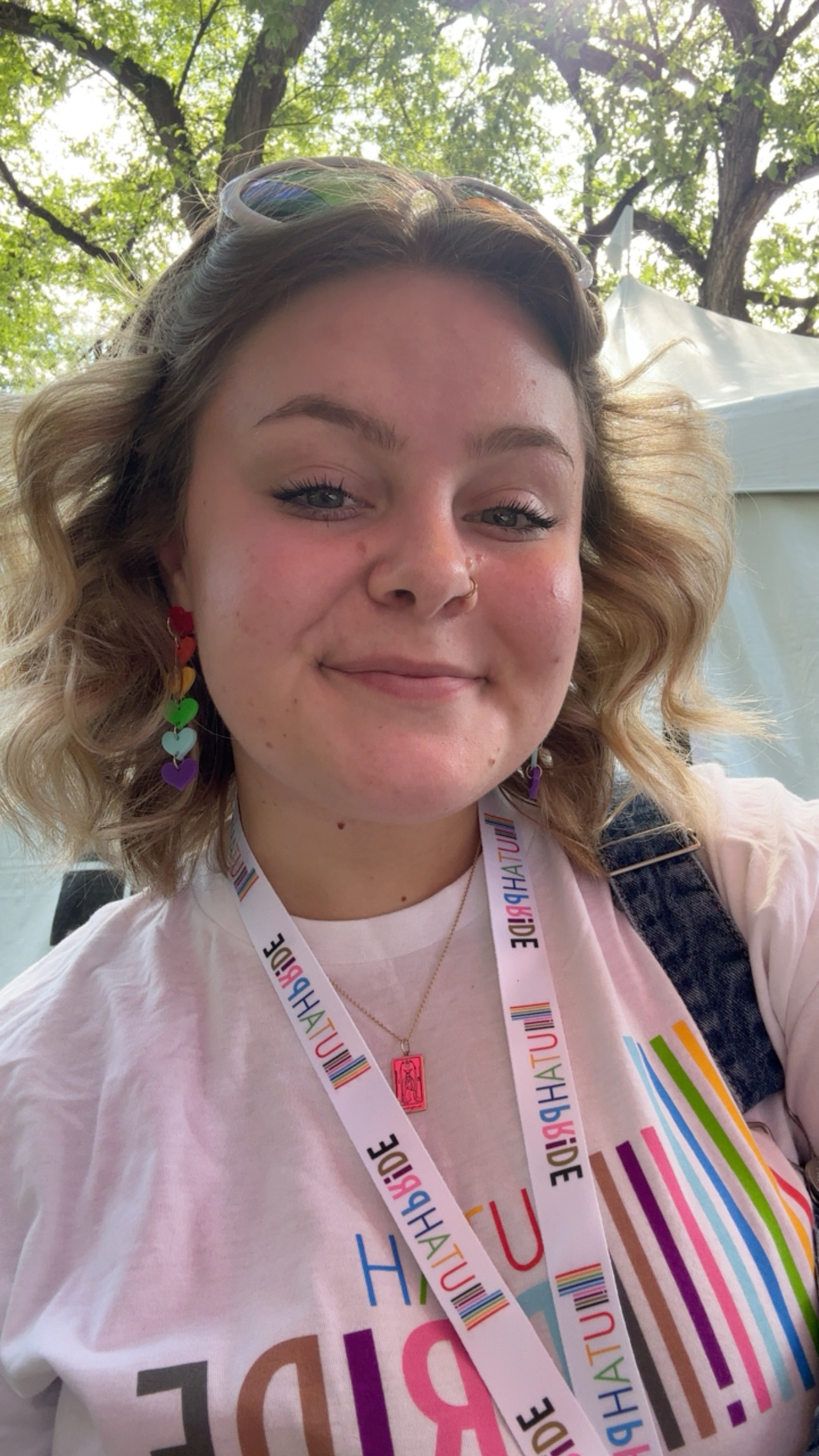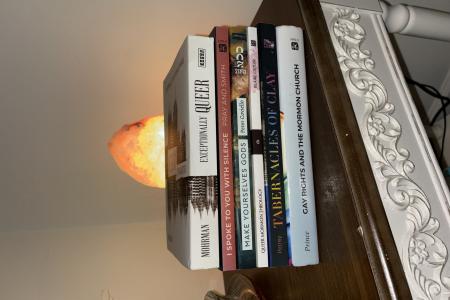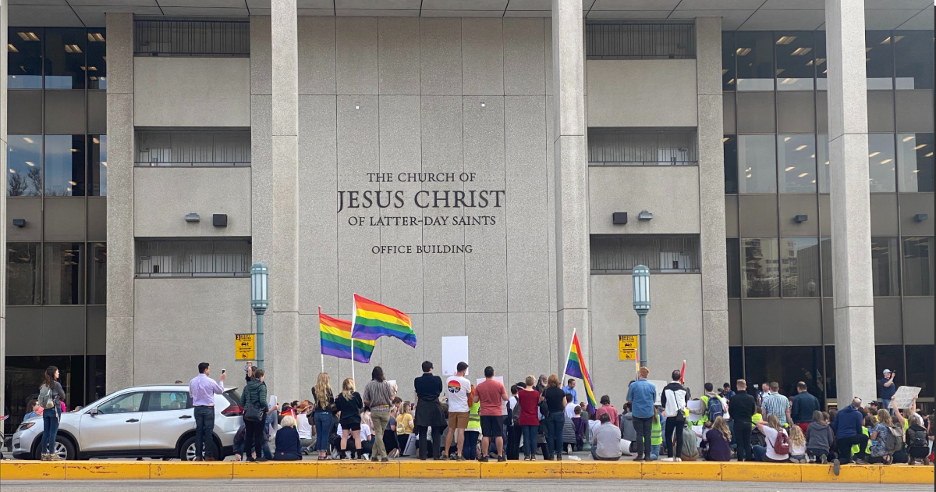President's Showcase
Maiya Johnson She/her
Supervising Professor: Dr. Joseph Hellweg
Maiya Johnson is a third-year student with a double major in Religion and English (Editing, Writing & Media). In addition to her IDEA Grant research, which has funded her honors in the major project, she is the president of Students Organized for Religious and Cultural Exploration (SORCE), FSU’s “religion club.” She has also worked with LGBTQ+ organizations, like Flourish Therapy and the Utah Pride Center, to advocate for queer rights in LDS spaces. Maiya enjoys researching the complexities of queerness in religious environments, especially pertaining to queer individuals of marginalized genders. After she graduates in the spring of 2025, she anticipates attending graduate school to obtain her Ph.D. in American Religious History with a concentration in Mormon and Queer Studies. In the future, she hopes to become a professor of Religion and Gender and Sexuality and continue her research on queerness in religious spaces.
Abstract
The Church of Jesus Christ of Latter-Day Saints (LDSC or Mormons) deems homosexuality morally transgressive and socially unacceptable. Mormon theology is grounded in gendered heterocentric principles, specifically, the requirement of heterosexual marriage to achieve “eternal exaltation.” The Church typically centers its concerns with homosexuality on men, relegating queer LDS women and individuals assigned female at birth (AFAB) to a presumed state of compulsory heterosexuality and normative femininity. Therefore, queer LDS women are forced further into the margins, leaving them mostly overlooked and unheard. I aim to give queer LDS women a platform to vocalize how their experiences demonstrate the marginalization of female queerness in Mormonism.
This study documents the lived religious experiences of queer LDS women and AFAB persons in Utah. It examines how such individuals orient themselves and their sexual identities within a religious culture that rejects them. My study also explores how queer LDS women categorize themselves in relation to the LDSC and how they respond and cope with their Mormon identity and experiences based on their self-categorization.
I conducted open-ended, semi-structured, focused life-history interviews with queer LDS women and AFAB persons over six weeks this past summer. These interviews enabled participants to reflect on their religious experiences and explain how anti-queer LDS theology and doctrine have directly impacted their lives and self-perceptions. They narrated the challenges of navigating their relationship with Mormonism and how living in a dense Mormon region often negatively impacts their daily lives through culture and politics.
Presentation Materials



